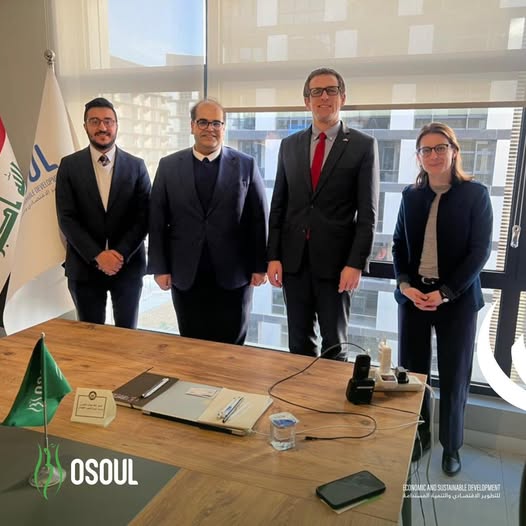استقبل السيد خالد الجابري، رئيس مؤسسة أصول للتطوير الاقتصادي والتنمية المستدامة، في مقر المؤسسة، السيد رولاند فستبة، القائم بالأعمال في السفارة الألمانية، والسيدة نيكولا هوخاوزن، المستشار الاقتصادي في السفارة.
تم خلال الاجتماع مناقشة العديد من القضايا الاقتصادية التي شهدت تقدماً ملحوظًا في عام 2024، مثل الإصلاحات الضريبية، تطوير الدفع الإلكتروني، التحول الرقمي، والتعليم المهني. كما تم التطرق إلى التحديات التي تم تذليلها بالتعاون مع الحكومة العراقية، بما في ذلك الانتقال إلى النظام المحاسبي الدولي.
كما ناقش الحضور أهمية خطة التنمية الوطنية 2024-2028 التي أطلقتها الحكومة، وأثرها على تعزيز النمو الاقتصادي والتنمية المستدامة. وتناولت المناقشات أيضًا آفاق التعاون بين الشركات العراقية والألمانية لدعم المشاريع الاستثمارية وتعزيز القطاع الخاص في البلدين.

